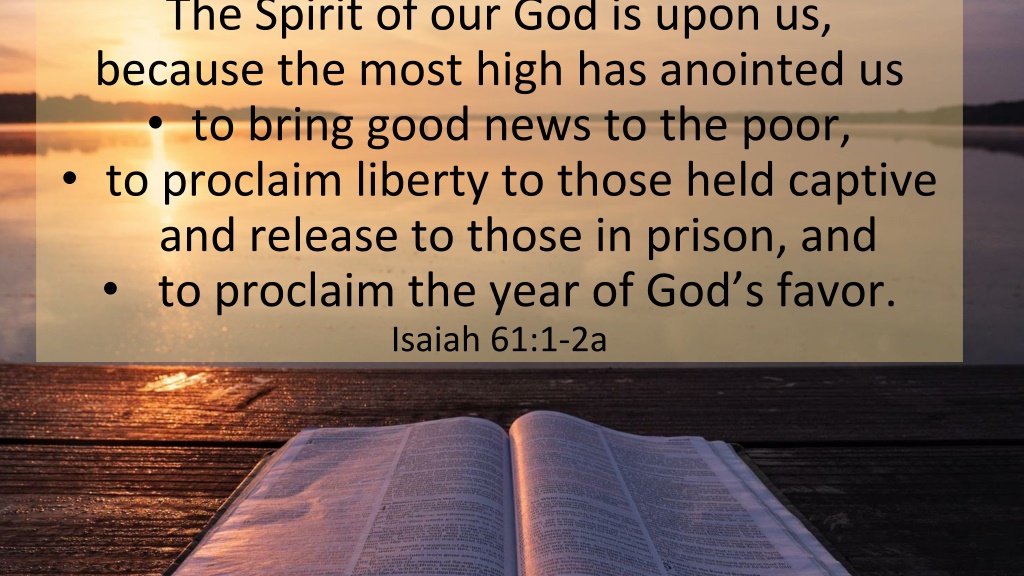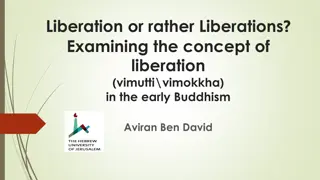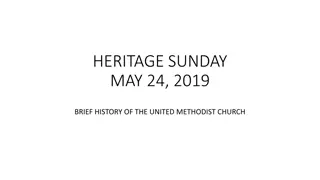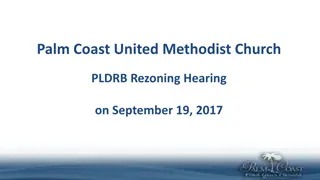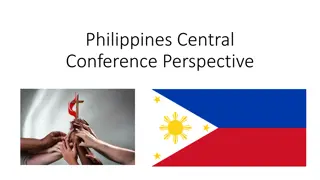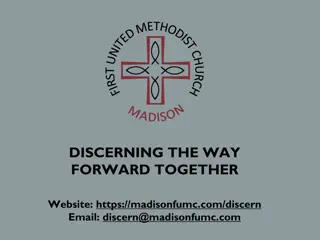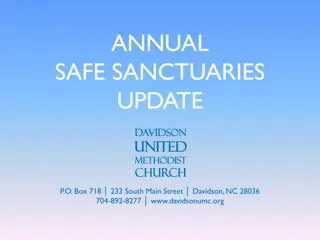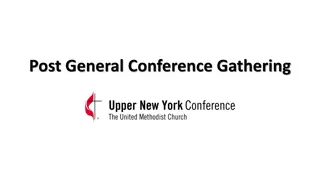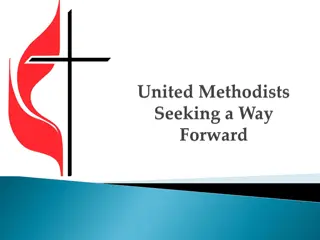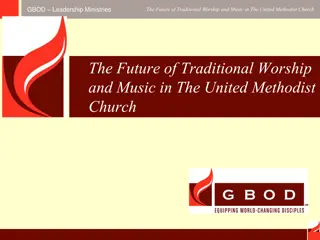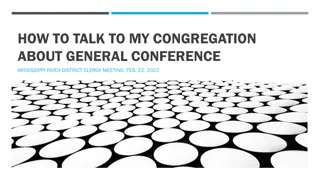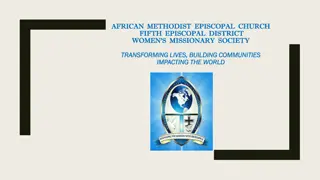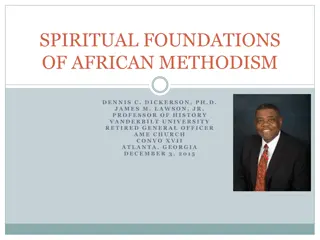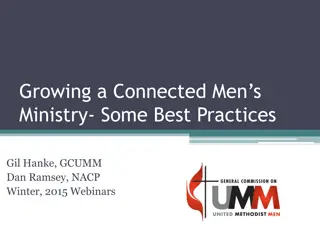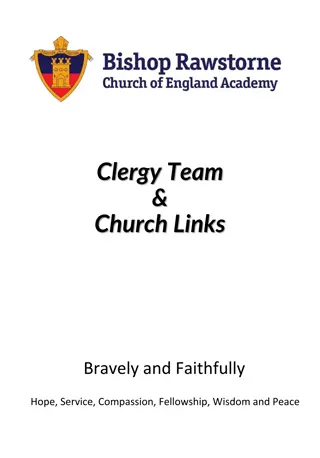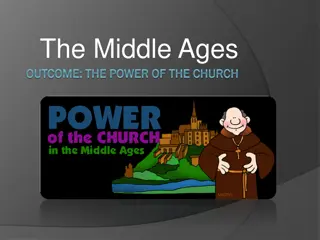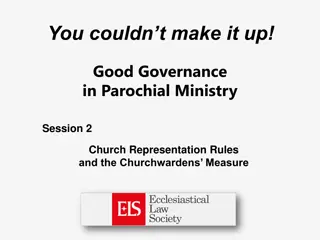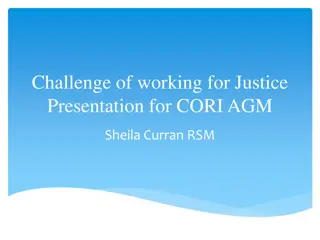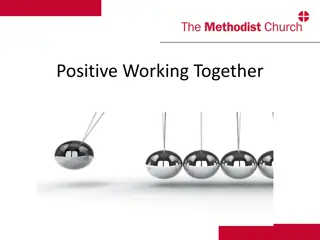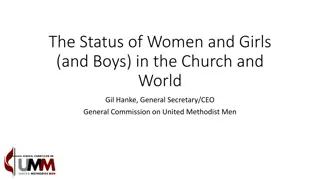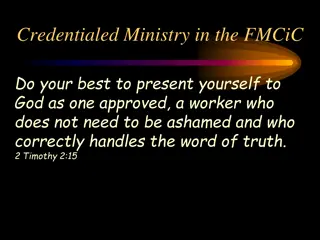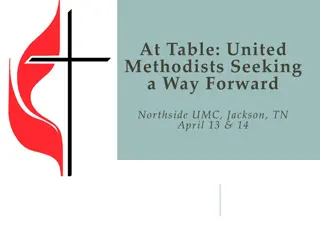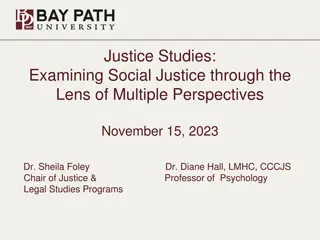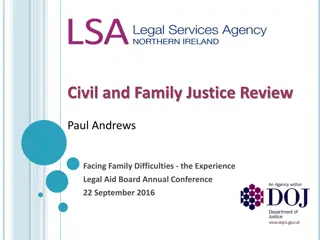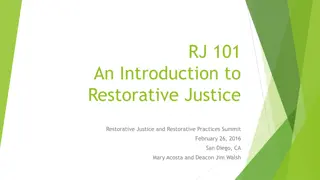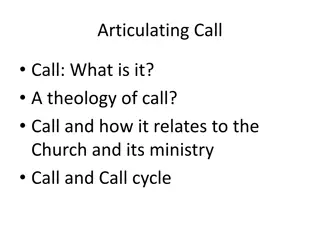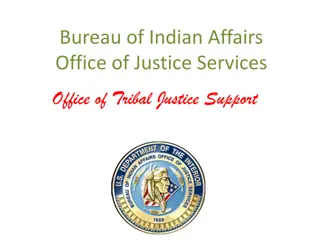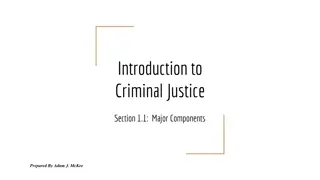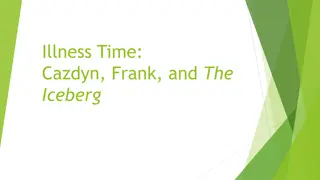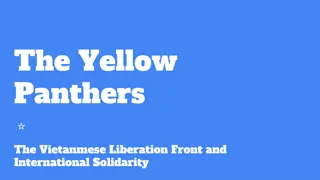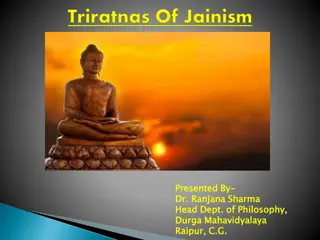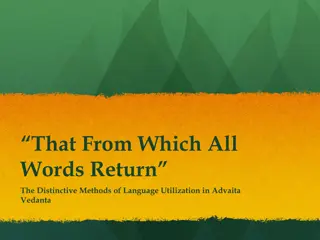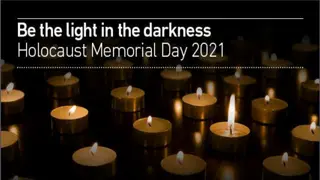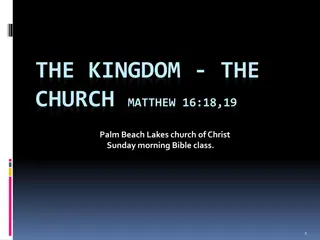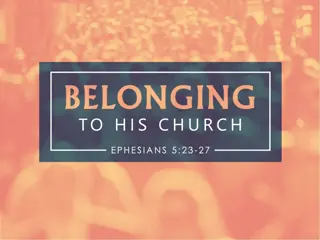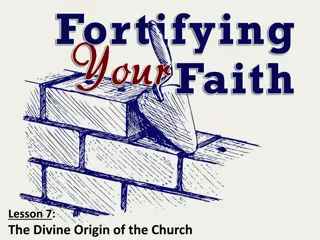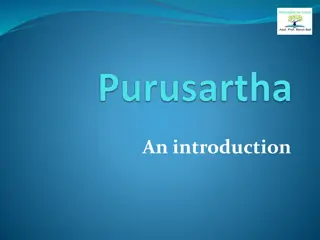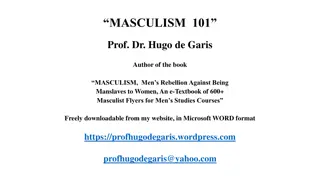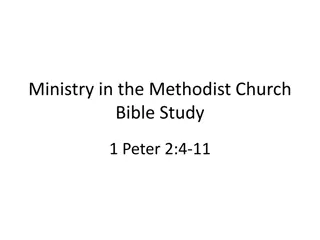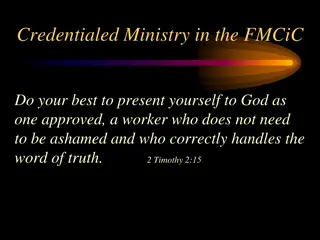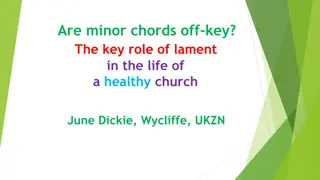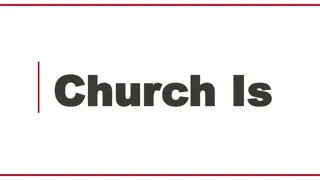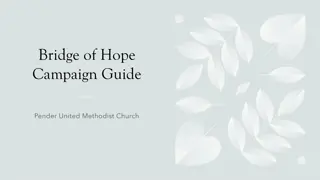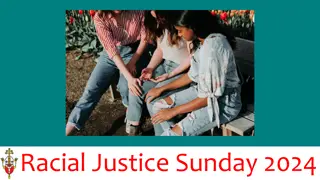United Methodist Church: A Call for Liberation and Justice
The United Methodist Church is called to bring good news to the marginalized, proclaim liberty, and work for justice. Embracing liberation by resisting evil and oppression, the church aims to form a community where all are valued, power is shared equitably, and solidarity with justice movements is upheld. Amid a history of challenges, the call remains to pursue intersectional justice, accountability, reconciliation, and economic repair while reflecting the light of Christ in all actions.
Uploaded on Oct 07, 2024 | 0 Views
Download Presentation

Please find below an Image/Link to download the presentation.
The content on the website is provided AS IS for your information and personal use only. It may not be sold, licensed, or shared on other websites without obtaining consent from the author. Download presentation by click this link. If you encounter any issues during the download, it is possible that the publisher has removed the file from their server.
E N D
Presentation Transcript
The Spirit of our God is upon us, because the most high has anointed us to bring good news to the poor, to proclaim liberty to those held captive and release to those in prison, and to proclaim the year of God s favor. Isaiah 61:1-2a
The N.E.W. Plan New Expressions Worldwide Jay Williams Alka Lyall Silva Souto Alex da UM-Forward.org @UM_Forward
What is liberation? Liberation is accepting the freedom and power God gives us to resist evil, injustice, and oppression in whatever forms they present themselves. (from our UMC Baptismal vows) Liberationists are interested in radically reimagining the ways we relate to one another and the world. Liberationists will form a church where: the marginalized are centered, power is equitably distributed, and we are free to act in solidarity with movements for justice.
UM Forward Who are we? We are a collective of United Methodist Christians who labor toward a just and loving church. We are laity, clergy, and scholars grounded in historical struggles and present resilience. We are rooted in our Wesleyan heritage. Our passion for justice is only surpassed by our hope in Christ Jesus. As people of faith, we proclaim that the good news of Jesus Christ is for all.
Where are we now? Separation of the UMC is inevitable. We call the Church to commit to a liberative process to determine how separation will proceed. The 2020 General Conference should adopt a process to develop a Plan of Separation through a Transitional Council that prioritizes: integrity, equity, transparency, representation, and accountability.
A Methodist History of Harm 1784 Founding of Methodist Episcopal Church 1833 Colonial mission to Liberia 1844 Split over slavery 1939 Start of Racial Segregation 1956 Clergywomen s full rights 1968 End of Racial Segregation 1972 Incompatibility Language 2019 Traditional Plan increases persecution of LGBTQIA+ persons
What are we called to do? To work for intersectional justice with integrity To repent and pursue true reparation, reconciliation and healing To remedy past and present economic harm To be accountable to one another To reflect the light of Jesus Christ
The N.E.W. (New Expressions Worldwide) Plan Creates: New Global Methodist Denominations A Plan of Separation A Process with a Transitional Council
New Global Methodist Denominations UMC continues to operate under Transitional Council while new denominations form Placeholder denomination names and descriptions: Traditionalist Methodist Church Moderate Methodist Church Progressive Methodist Church Liberation Methodist Church grounded in Gospel-centered, intersectional justice; values comprehensive change over incremental progress
Plan of Separation Transitionally dissolves the UMC in a special General Conference before 2024 Attends to all practical, legal, and financial considerations Governed by principles of: self-determination, equitable distributions of general church assets, reparative economic ethics, and restorative justice
Transitional Council Develops the Plan of Separation Composed of: Five individuals named by each of the four new denominations (including at least two lay individuals from each) The President of the Council of Bishops of The UMC Empowered to organize and staff itself Remains accountable to the four new denominations Communicates with general agencies and boards throughout process Funding The General Council on Finance and Administration, in consultation with the Council of Bishops, shall fully fund the work of the Transitional Council, including:
General Principles: Alignment and Connection General Agencies become independent 501(c)3 organizations Each will have a self-perpetuating boards of directors Each retain their current liabilities, assets, and reserves Services agreed between each agency and each new denomination Self-Determination Conferences, Local churches, and clergy can decide to align with a different new denomination.
Process Grant sufficient time to transition Moratorium on trials during transitional period Finances Pension liabilities would persist and be transferred proportionally. Historically marginalized and particularly vulnerable churches are set up for success worldwide. Determined by the General Commission on Religion and Race and the General Commission on the Status and Role of Women Property held in trust is released to the entities that have stewarded those entrusted properties.
How is the N.E.W. Plan unique? Rather than prioritizing haste, the N.E.W. Plan offers a measured response to our intractability. Unique elements: Embodies the goal of freeing the Church to fully live into new expressions of the Wesleyan faith Transitional dissolution of the United Methodist Church Gives the possibility for full communion Offers a transitional process that is transparent, intentional, and measured Provides just, equitable treatment of marginalized people
Use your ambition to try to get the greater gifts. And I m going to show you an even better way. 1 Corinthians 12:31
Thank you UM-Forward.org @UM_Forward
